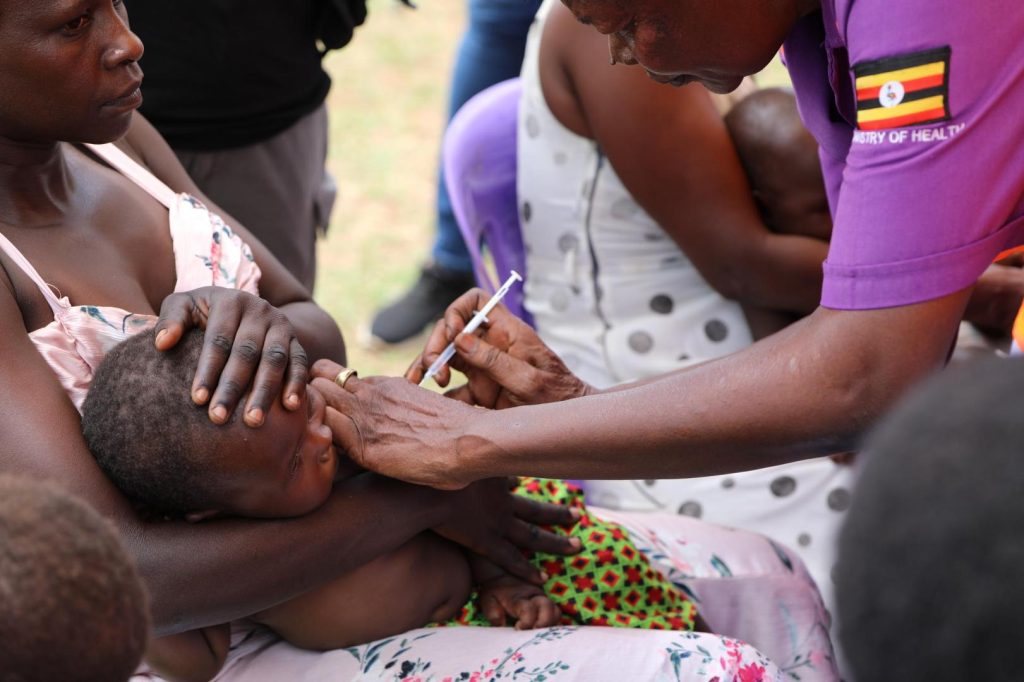Six months after Uganda rolled out the much-anticipated malaria vaccine, the campaign that began with fanfare is now drawing mixed reviews, with critics warning of a widening gap between government rhetoric and the realities in rural communities.
In March, Health Minister Dr. Jane Ruth Aceng flagged off the distribution of 2.278 million doses of the R21/Matrix-M malaria vaccine, calling it a historic step in the fight against a disease that causes 40% of all outpatient visits and 14% of annual deaths. The launch attracted heavy media coverage, heralding the vaccine as a game-changer in Uganda’s goal to eradicate malaria within the next decade.
However, interviews with health officials and frontline workers suggest the rollout has been marred by poor communication, weak community engagement, and a top-down approach that alienated local leaders.
“It is cosmetic to publish news about the success of the exercise in mainstream media when the reality on the ground is different,” a senior Health Ministry official said on condition of anonymity. “Many communities have not been fully sensitized. The portrayed figures in Bunyoro and Kigezi may be misleading.”
Officials coordinating donor programs in Karamoja and Teso also decried the lack of strategy, pointing to “too many middlemen” and inadequate involvement of trusted local structures such as FM stations and village leaders. In some areas, health workers were met with suspicion, while others failed to reach remote communities altogether.
One cited example was June’s campaign in Mbarara, where Health Ministry Permanent Secretary Dr. Diana Atwine was reportedly misled into believing participation levels were high, despite reports of rural mothers missing out.
“Instead of using social media influencers to celebrate success, the ministry should directly engage community leaders,” one official argued, warning that misplaced priorities risk undermining trust in the program.
The situation has drawn parallels to the 2007 Gavi scandal, when billions of shillings in vaccine funds were lost through fraud. Critics fear that without urgent correction, history could repeat itself.
When contacted, a senior Health Ministry commissioner admitted gaps in information dissemination. “We contracted companies to sensitize communities, but they have not done enough in upcountry areas. Still, we have time to rectify the situation, and there is no need for panic,” he said.
Contacted for a comment, Charles Kasujja, the Chief Operations Officer at Melmo, the company contracted to publicize the malaria vaccine campaign did not respond to our calls or WhatsApp messages.
For now, Uganda’s malaria vaccine campaign remains a tale of two narratives: glowing headlines from Kampala and hesitant communities upcountry where confidence has yet to take root.
